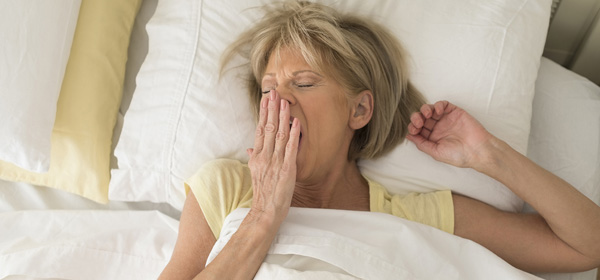Millions are failing to get the sleep they need to live healthy, happy lives, according to a Sleep Health Foundation report released today.
It estimated 7.4 million Australians routinely missed out on adequate shut-eye in the 2016-2017 financial year, at a cost to the nation of $66 billion.
“This lack of sleep had harmful effects on everyday function and exacerbated health conditions from heart disease and stroke, through to diabetes and depression in tens of thousands of Australians,” said Professor Dorothy Bruck, chair of the Sleep Health Foundation, which commissioned the report.
“On top of this, it claimed the lives of more than 3000 people. The cost of sleep deprivation is utterly alarming and confirms we need to take urgent action to put sleep on the national agenda.”
The report found two out of every five Australians are suffering from inadequate sleep.
Half of these people experience ongoing pathologically high levels of daytime sleepiness, Prof Bruck said. The rest know that their sleep is routinely insufficient because they can’t function at normal levels of alertness, concentration and emotional control.
“This clearly shows that we have an epidemic of disabling sleep loss affecting a large chunk of our population,” the sleep psychologist said. “Put simply, we have 7.4 million Australians who are not getting the sleep they need to fully function throughout the day.”
The results are especially concerning when considered alongside new research suggesting sleep is vital in allowing each cell, in every organ of the body, to continue to function.
The report puts the financial cost of sleeplessness at $26.2 billion a year. This includes a health bill of $1.8 billion and lost productivity costs of $17.9 billion and loss of wellbeing cost of $40.1 billion. Despite this, the authors found governments gave little attention to the area.
“Sleep – or rather the lack of it – is a substantial burden on our economy and the livelihood of Australians, dampening mood, exacerbating health problems, dulling our productivity and making us a danger on the roads and in workplaces around the country,” Prof Bruck said.
“As these results show, it’s time governments gave sleep the policy airtime it deserves to get our citizens sleeping better and longer.”
The report calls for a carefully-worded public education campaign around sleep.
“Australians are not prioritising sleep. They think it’s tradeable for waking time, which it most definitely is not. Re-educating people could have powerful results,” she said.
Any campaign would be wise to include warnings around the use of blue light emitted from computers, tablets and phones at night, the report states.
“That light wreaks havoc on your body clock and is the reason many people struggle to get to sleep at night after sending emails or watching a movie on their laptop.”
The report also calls for more policy-driven research on the causes of sleep disorders as well as better prevention, early detection and cost-effective treatment options for people who can’t nod off.
Do you suffer from insomnia or other sleeping disorders? Do you think the Government should do more to address sleep deprivation?
Read more at sleephealthfoundation.org.au
Related articles:
Sleep – five tips to get enough
Can sleep prevent prostate cancer?
Poor sleep linked to Alzheimer’s

